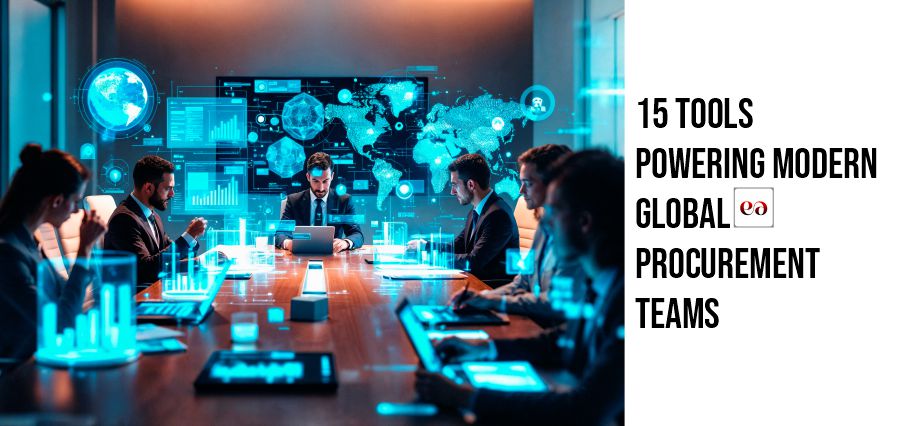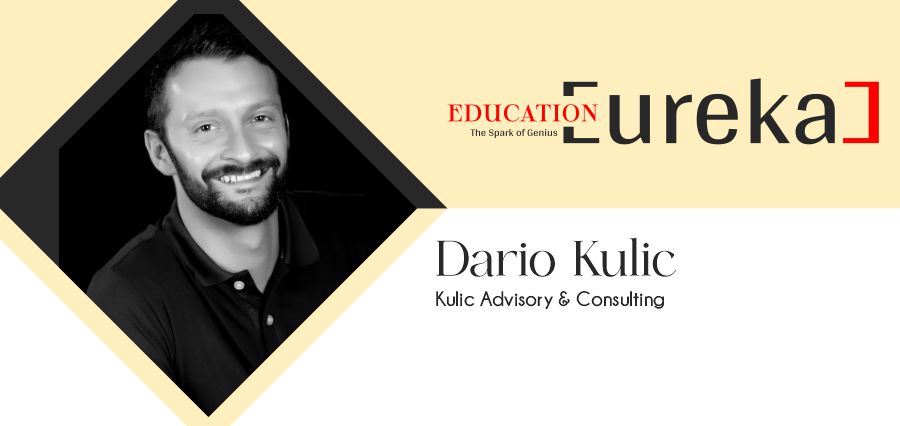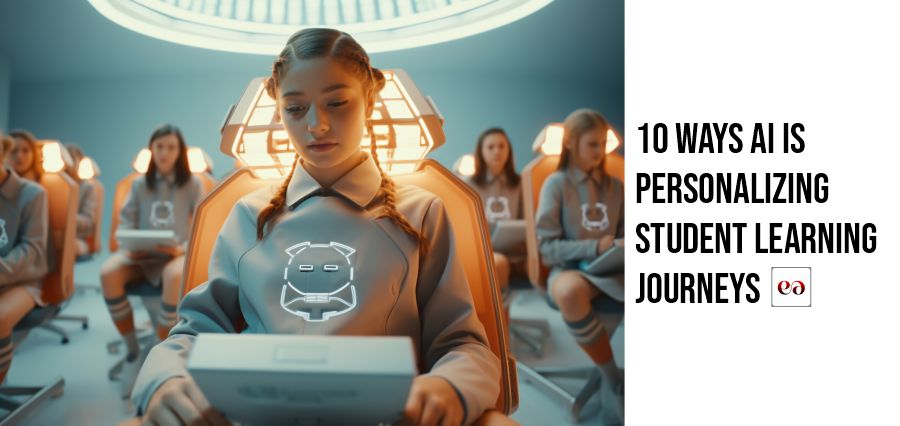
On a mission to turn early responsibility into a lifelong gift for connection and growth!
Life often demands more than what we expect, especially when family depends on you. For Bryan Jimenez Moya, growing up in Cartago, Costa Rica, this reality came early. He is the oldest of 5 siblings, one sister who grew up alongside him under the care of their single mother, and 3 step-siblings from his father’s side who came into his life later. While his mother focused on raising him and his sister, Bryan acknowledged the chance to connect with his step-siblings, stepping into the role of a big brother who would be there for them in whatever way they needed.
His childhood was formed not only by his mother’s sacrifices but also by the steady, loving presence of his grandmother, who played a vital role in helping to raise him and his sister. Her influence remains a foundation of his values and the way he treats others.
That early responsibility formed who Bryan is today. He is driven by a restless energy to learn and grow, always curious about the world and the people in it. Connecting with others comes naturally to him, he listens closely, genuinely interested in their stories, their dreams, and the challenges they face.
This ability to connect is more than a skill for Bryan. It is a way of life. It fuels his passion for helping people become better versions of themselves, step by step. His leadership is quiet but powerful, built on empathy and trust rather than authority.
Bryan believes in progress over perfection. As he puts it, “Stop looking for perfection! What’s perfect doesn’t need to change and eventually gets outdated. Instead, aim for continuous growth and improvement, that will help you reshape the future as much as you need.”
From his roots in Cartago, Bryan carries this spirit forward, eager, patient, and open-hearted. He leads not just with ambition but with the kind of care that lifts others as he moves ahead. His story reminds us that real growth comes from connection, responsibility, and the willingness to learn from everyone we meet.
Let us learn more about his journey:
Bryan acknowledges that everything in his life does not shine or appear crystal clear. He lives with ADHD and anxiety, a challenging combination. He recalls that after leaving the most suffocating, on-the-edge kind of job, he experienced such severe burnout that he had to take a full year off work just to be able to sleep, eat, and think independently again, to simply be human again.
He reached a point where nothing seemed to matter because survival depended on work, yet he hated the job so deeply it made him question the value of being alive. This experience is one he wishes no one would have to face, yet thousands live it, feeling trapped without options despite having a spark to dream big and the potential to make those dreams come true. Bryan was that person, and he resolved never to feel that way again.
After thirteen years of experience in customer service, sales, training and development, projects, change management, and executive leadership, Bryan has learned to always prioritize the well-being of every individual when working toward a common goal. He strives to make employees feel like key players who are heard, rather than just another number in the company.
This perspective led Bryan to study psychology, providing him with tools to combine his knowledge with the structure of project creation and the methodology of change management. This combination helps him develop dynamic work environments where people enjoy their work experience, achieve objectives and projects efficiently and effectively, and, most importantly, feel empowered by their work and ready to accomplish the unthinkable. For Bryan, the question is why aim for the sky when there is a whole infinite universe beyond.
His view of life and what he has learned is that humanity exists in a chain of help and change. A person, called A, helps person B, who then helps C, D, and E, generating a cycle where everyone receives and gives help. Bryan seeks to bring this vision to the teams he has had the opportunity to work with.
People often consider Bryan a daydreamer because when presented with ideas, opportunities, or projects, he insists that limits exist only in our minds. Everything is achievable and doable, requiring only proper planning to reach goals.
Bryan’s passion is rooted in creating opportunities that transform people at their core and elevate their potential to the next level.
When Bryan thinks about an experience, he goes back to when he was six years old and started playing the violin at the municipal music school in Paraíso, Cartago, Costa Rica. Since childhood, he loved the sound of the violin, watching his cousin Ericka Meza Solano (an amazing teacher and mentor on the art of playing the violin) being able to create an artistic melody with a simple movement of the fingers and wrist. That was something he always wanted to do. Even though each position was complex, he managed to build a magical universe with each note, which, when combined, created a unique symphony.
As part of his happy memories, there are also things that are often unpleasant. He remembers that, although he had the talent, he lacked the discipline to be a full-time musician one day. Feeling obligated to practice and study took the fun out of what he enjoyed doing. A similar case happened when he was ten years old. He had the opportunity to join the Costa Rican Guides and Scouts, where he learned teamwork, the importance of leadership, how to work toward goals, and also how to survive in hostile environments and adapt with the materials and resources available at the time. But being obligated to keep achieving levels because “it was the right path to follow” took out all the fun of it. That led him to years of therapy and falling in love with the psychological path of human behaviors, traumas, and experiences. He wondered how it could be possible that, by only being a child, he felt so obligated to leverage others’ expectations.
At the corporate level, the first time Bryan detected that a change was necessary (and urgent) was when the company imposed goals to be worked on by periods, and its employees had to find a way to achieve those goals without negatively impacting the business and without insights or support on how to do it, something like “you’re on your own but if you do not make it, you are fired” kind of scenario. He could not believe that kind of management still existed.
The first time he perceived that changes were being implemented was when the department to which he belonged took its employees into consideration when planning the strategy or the path to achieve the annual objective. The atmosphere generated in this situation was impressive, and the people who were part of the team felt seen and heard, that their voice mattered, and that they were more than just a number of employees working to achieve a goal. At that moment, Bryan could feel the magic that the violin evoked in him when he was six years old.
From Bryan’s perspective, leadership cannot be perfect, although that remains the narrative and history that academia and theorists often reference. His way of demonstrating it is this: a good leader possesses the ability to adapt to dynamic environments that are constantly changing and maintains control and calm when unforeseen situations arise. Additionally, such a leader guides teams efficiently and effectively, which diverges somewhat from the traditional vision of a perfect leader who has everything under control.
Likewise, Bryan stresses the importance of knowing how to delegate tasks rather than considering oneself a superhero who is intimidated by nothing and does not require help. Instead, a leader should be a vulnerable person capable of expressing this vulnerability and asking for support if necessary. Without collaboration, established goals frequently remain unachieved. Human beings can do many things, yes, but not everything at once. Asking for help is always a wise choice that does not diminish individual or professional value.
He states that one of the greatest lessons learned from change management methodology is that the desire to aspire to perfection can have the opposite effect from what is expected. It can impair the growth and development of team members and even lead to stagnation and repetitive actions. When a leader seeks perfection, processes become fixed and resistant to change or improvement. The truth is that everything requires constant evolution and adaptation.
In every role he has held, Bryan has sought to promote continuous learning and improvement as essential elements within teams. These elements expand opportunities that, at times, may not have been considered possible or necessary but prove crucial when analyzed carefully and when people are given the chance to develop in their roles.
Bryan believes people always remember the moments that marked a before and after in their lives. In his case, he considers the key moment to be when he experienced how a leader sought to help their employees and their needs, because although companies have needs, people and their needs come first.
He observes that in business environments, the mindset often returns to the days of the second industrial revolution, where people were expected to be specialists in a single task or topic, rather than adopting a realistic approach in which development and internal growth opportunities are paramount and highly important.
Within his type of leadership, Bryan prefers that team members feel heard, that their proposals have potential, and that every thought be validated, because he knows how scary it is to express visions out loud. He also wants team members to be part of a real development plan with mutual interests, where they can be trained with the necessary tools to grow both internally and externally within the company, but where employees make the decision to stay on the team because of the environment generated by this leadership perspective.
When Bryan has worked with teams around the world, he realizes that many of the challenges are so mundane that they go unnoticed. Things like time zones, cultures, languages, beliefs, education, approaches, goals, and values become evident only on a microscale in local teams.
Without a doubt, the key tools to address these challenges are clear, purposeful, and effective communication, patience and discernment to assess each situation that may arise, and openness to the fact that team actions can turn out well or badly. He likes to close this idea with a phrase that always resonates with him: an efficient team is one that is built for the best and prepared for the worst.
From his experience, Bryan adds that support in coaching processes is key to building confidence and overcoming fear in any environment or scenario. One technique he loves using in coaching and training is the SO-DO-TO technique, which stands for See One, Do One, Teach One.
Helping others understand how a process works while observing it, empowering them to apply it, and doing so in a controlled environment gives them the tools and expertise necessary to teach others how to replicate the process (and, incidentally, the technique). He likes to think of it as collaborative work.
To achieve balance with global trends, Bryan explains that it is necessary to be clear about the context of both space and time in which one finds oneself, in addition to the training opportunities and tools that the teams have, in order to evaluate what suits each specific team. A very common mistake among leaders is wanting to adapt everything, but in many situations this proves unfeasible due to a lack of resources.
He also mentions that among the most common challenges today is avoiding resistance to change and being part of the crowd, believing that what makes a team unique is lost, which should be avoided. Many theories and methodologies worked in the past, but today they have adapted and even evolved, generating an operational experience that brings high levels of productivity and great results, thanks to automation and the speed with which repetitive tasks are carried out, while fostering well-being and personal fulfillment in employees.
Bryan believes that among the qualities leaders need are being communicative, but effective, having emotional intelligence for conflict resolution, and learning not to take everything personally or as an attack. He explains that these “no’s” do not close doors; they can provide new opportunities for growth. Trusting processes is important because it is a whole reason for being.
Likewise, he mentions that it is important to have negotiation tools, the ability to adapt to different work environments, active listening, and taking the time to not just listen to oneself. In addition, leaders must learn to resolve conflicts and avoid making a big deal out of a teacup when only a drop causes problems. Above all, Bryan repeats that the needs of the team will always come before his own needs as an individual.
Bryan says that emotional intelligence plays a crucial role in his coaching methodology. He shares that, from his experience as a psychologist in training, combined with certification in psychological first aid and as an agile leader and coach, plus knowledge of tools like the LEGO Serious Play methodology, lean, and scrum, he believes a team that exists in an optimal emotional and psychological space will always deliver better results.
Such teams move away from the heavy pressure to achieve perfect objectives and the belief that the world ends if those objectives are not met, leading to a very different, more effective performance when these healthy spaces are present.
Bryan described a situation involving a leader with an old-school background who relied on an outdated methodology idealized for his specific context, which did not apply to today’s corporate environments, especially those using tools like technology, artificial intelligence, chatbots, and digital assistants.
The leader’s resistance to updating and adapting to the new era was putting his job stability at risk due to fear of the unknown. Embracing current tools and leaving his comfort and knowledge zone presented a huge change to face in such a short time. As a team, the decision was made together with this leader to level up his knowledge of technological tools as well as soft skills.
This approach allowed him to update his work ethic to a shared leadership style and a team vision, where every member is an essential part and can offer great support in different situations that may arise, with current tools playing a role in resolving these situations quickly and effectively.
Bryan explains that the biggest misconception among business leaders about executive coaching is the belief that their idea and message always represent the right approach and should be communicated equally to everyone, influencing the final result and benefit for the company. He emphasizes that messages must always be adapted according to the target audiences and their communication objectives, whether the goal is simply to inform or to create impact and generate rapport.
He adds that it is essential to understand the desired outcome in order to achieve a goal. The outputs can be defined, which allows for the completion of that outcome by working on the tasks that develop those outputs. Additionally, Bryan points out the importance for leaders and teams to be prepared for last-minute changes, such as those related to globalization, resistance to coaching, generational differences, and variations in how messages are expressed and received.
For Bryan, the best way to measure the long-term impact of an activity on people and organizations is feedback. A fundamental part of coaching is knowing how to give and receive feedback. Even today, many people hear the word feedback and feel fear. They associate it with something negative. However, feedback is so enriching that this fear, instilled by the old school, results only from a misused concept.
As coaches, Bryan believes it is urgent to train themselves in strategic feedback and communication tools to generate a culture where feedback is even requested and becomes something to be proud of. When feedback focuses on an action or an opportunity to improve, it represents an honor to have the chance to help oneself and others become better in all areas. When constructive and positive feedback is given, it provides the necessary energy for people to continue building the best version of themselves.
Bryan believes that future leadership will focus strongly on change, adaptability, and ongoing improvement. Organizations will thrive when their goals are created collaboratively, with the growth of every individual at the core.
Employees will feel empowered to speak up and share their ideas freely. Teams will approach any challenge or objective with confidence and positivity, backed by a culture that encourages support and eliminates fear.
“As I mentioned before, this vision that drives me in life, a chain of support and growth, I would love to see more people replicate this model. Providing opportunities where there is talent without expecting anything in return, because the reward will go to someone else who needs help or guidance in the future! If we all had this desire to collaborate, co-create, and build along these lines, we could encourage each other to dream and aspire big. After all, our time is limited, and I ask you: what’s the point of being reserved with our dreams and goals? I mean, in the end, we’ll only have the bad taste of having thought about it or the satisfaction of having achieved it,” says Bryan.
Discover more insightful articles on education trends, exclusive interviews, in-depth magazines, and the latest educational news—explore now on the Education Eureka website.





Welcome to the future of digital storytelling, where creativity meets innovation. We’re not just a magazine platform; we’re a team of passionate visionaries committed to transforming how stories are shared, celebrated, and experienced in the digital age. Join us as we inspire, inform, and redefine the world of digital magazines.
© Copyright 2025 | educationeureka | All Rights Reserved.